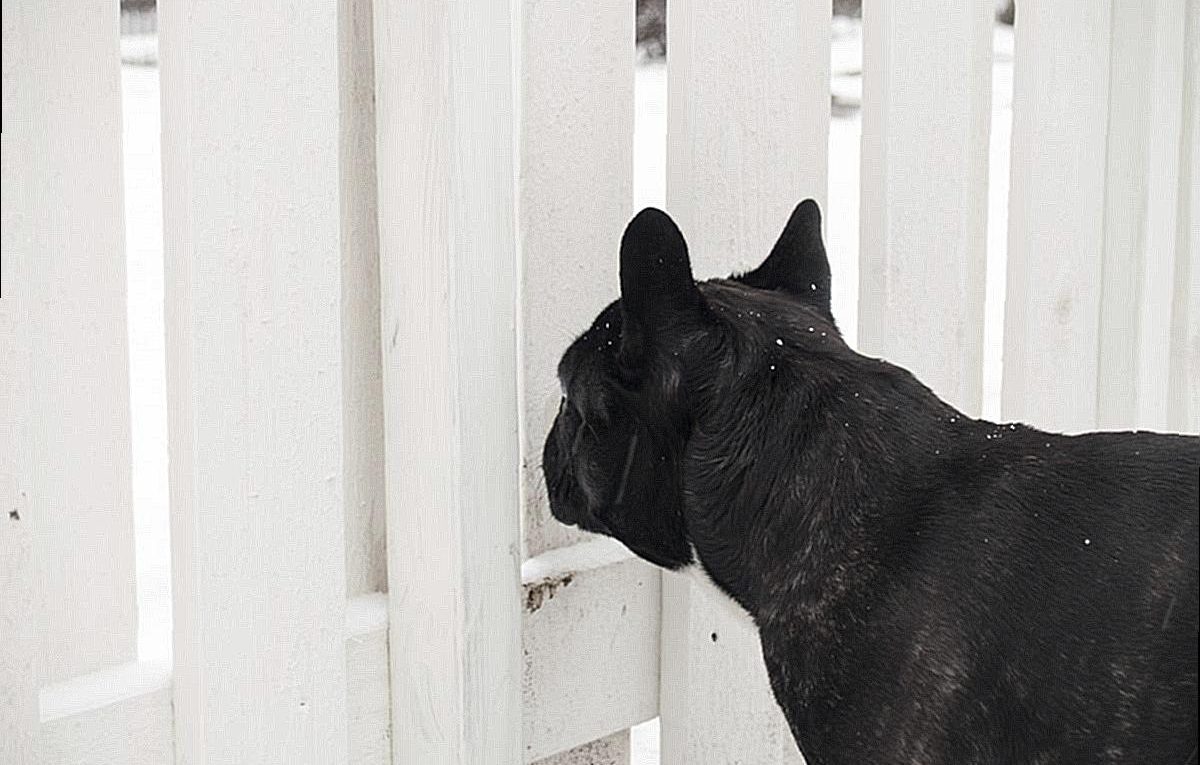Are French Bulldogs good protection dogs?
You’re thinking about getting a French Bulldog and wondering if they can double as protection dogs. It’s a legit question, my friend.
French Bulldogs are known for being cute and friendly, but can they really step up when it comes to keeping you safe? Well, in this blog post, we’re gonna dive into the characteristics of these adorable pups and figure out if their small size and lovable nature can actually translate into some serious protection skills.
If you’re curious to know whether French Bulldogs have what it takes to be reliable protectors, then stick around because we’re about to spill the beans.
The Nature of French Bulldogs and Their Suitability as a Guard Dog
Contents
- 1 The Nature of French Bulldogs and Their Suitability as a Guard Dog
- 2 Physical Limitations of French Bulldogs as Protection Dogs
- 3 Alternatives to French Bulldogs for Protection Work
- 4 Alertness and Barking as Deterrents
- 5 Training a French Bulldog for Protection Work
- 6 The Pros and Cons of Having a French Bulldog as a Guard Dog
- 7 Understanding Your Expectations When Considering a Protection Dog
- 8 Tips on Choosing the Right Breed for Your Needs
- 9 Conclusion
When it comes to choosing a guard dog, French Bulldogs may not be the first breed that comes to mind. With their small size and friendly nature, they may not possess the traditional qualities of a guard dog. However, that doesn’t mean they can’t provide some level of protection and security. Let’s explore whether French Bulldogs are suitable as guard dogs and what factors to consider before making a decision.
Nature and Characteristics
French Bulldogs are known for their loving and sociable temperament. They form strong bonds with their owners and are highly affectionate. While this friendly nature is great for companionship, it may not make them the ideal choice for a guard dog. French Bulldogs are not naturally aggressive or territorial like breeds specifically bred for protection purposes.
Watchdog Abilities

Despite their friendly disposition, French Bulldogs have excellent watchdog abilities. They have a keen sense of alertness and will readily bark to alert their owners of any potential danger or intruders. This early warning system can be valuable in deterring intruders and drawing attention to suspicious activities. Their distinctive and loud bark can startle intruders, potentially discouraging them from proceeding further.
Loyalty and Dedication
French Bulldogs are incredibly loyal to their owners. They have a strong desire to please and protect their human companions. This loyalty, combined with their alertness, makes them dedicated guardians of their homes and families. While they might not have the physical strength of larger breeds, their unwavering devotion compensates for it to some extent.
Training and Socialization
The effectiveness of a French Bulldog as a guard dog largely depends on proper training and socialization. Early and consistent training helps establish boundaries and reinforces desired behaviors, including differentiating between normal visitors and potential threats. Socialization exposes them to various environments, people, and situations, ensuring they remain calm and confident.
Important Considerations
While French Bulldogs can provide a level of protection, it’s important to understand their limitations. Their primary purpose is companionship, and their suitability as guard dogs varies from individual to individual.
They may not exhibit aggressive behavior towards strangers and might greet them with a wagging tail instead. Additionally, French Bulldogs have physical limitations due to their short snouts and respiratory issues.
Physical Limitations of French Bulldogs as Protection Dogs
French Bulldogs are undeniably adorable and make great companions, but when it comes to protection work, they may not be the best choice. In this blog post, we’ll explore the physical limitations that make French Bulldogs less suitable as protection dogs compared to other breeds. Let’s dive in.
Size Does Matter:
French Bulldogs are small and compact, weighing between 16-28 pounds. While their size makes them great for cuddling, it also limits their ability to physically deter or apprehend intruders. A larger dog breed with more strength and stature would be better equipped for tasks that require physical force.
Breathing Challenges:
One of the most significant physical limitations of French Bulldogs is their brachycephalic skull structure. This means they have shortened airways that can lead to respiratory issues and overheating. Engaging in strenuous activities like running or intense physical confrontations can be especially difficult for them due to their compromised breathing ability.
Low Endurance Levels:
French Bulldogs are not known for their endurance or athleticism. While they may enjoy short bursts of activity, they quickly tire out. This lack of stamina can hinder their ability to sustain the required level of alertness and physical activity needed for effective protection work.
Friendly Nature:
French Bulldogs are renowned for their affectionate and friendly nature. While this makes them excellent companions, it doesn’t necessarily translate well into being protective. They are more likely to greet strangers with enthusiasm rather than displaying any aggressive or protective behavior.
Watchdog Potential:
Although French Bulldogs may not excel as traditional protection dogs, they can still serve as excellent watchdogs. Their keen sense of hearing and tendency to bark at unfamiliar sounds can alert their owners to potential dangers or intruders. However, relying solely on a French Bulldog for protection may not be advisable in situations requiring a higher level of physical deterrence.
Alternatives to French Bulldogs for Protection Work
When it comes to protection work, you need a dog that’s tough, loyal, and ready to take on any threat that comes their way. While French Bulldogs may be cute and cuddly, they’re not exactly cut out for the job. But fear not, my friends. There are plenty of other breeds that are more than up to the task.
- German Shepherds: These intelligent and fiercely loyal dogs are often used in police and military work. With their protective instincts and sharp minds, they make excellent protectors for both individuals and families.
- Rottweilers: Don’t let their big, blocky heads fool you – Rottweilers are as gentle as they come with their loved ones, but when it comes to protecting their family or property, they mean business. Their strength and confidence make them a force to be reckoned with.
- Doberman Pinschers: With their sleek bodies and alert ears, Dobermans are a force to be reckoned with. They’re highly intelligent and easily trainable, making them ideal for protection work. Plus, their loyalty knows no bounds.
- Belgian Malinois: These energetic and agile dogs are often used in police and military work due to their high drive and trainability. They’re always alert and ready to protect their loved ones at a moment’s notice.
- Boxers: Not only are Boxers strong and agile, but they’re also incredibly loyal and protective of their families. Their playful nature makes them great family pets, but don’t let that fool you – they’ll jump into action when it matters most.
- Bullmastiffs: These gentle giants may have a calm demeanor, but don’t underestimate their protective instincts. Originally bred to guard estates, Bullmastiffs are fearless when it comes to protecting their loved ones.
- Giant Schnauzers: These intelligent and versatile dogs are not only great family pets but also excel in protection work. Their loyalty and natural protective instincts make them a formidable choice.
Alertness and Barking as Deterrents
French Bulldogs may not be the first breed that comes to mind when thinking about guard dogs, but their alertness and barking abilities can still serve as effective deterrents. In this blog post, we will explore how French Bulldogs’ natural instincts, training, and vigilant nature make them valuable as watchful companions. Let’s dive in.
Natural Instincts:
French Bulldogs are naturally alert and attentive. Their instinct to be aware of their surroundings helps them pick up on potential threats, making them excellent watchdogs. They are known for their keen senses and can quickly detect unfamiliar noises or activities, alerting their owners to potential dangers.

Loud Barking:
While French Bulldogs may not possess the physical strength of traditional guard dogs, their loud barking can be intimidating to intruders. The sound of a French Bulldog’s bark can startle and draw attention to the situation, potentially deterring intruders or alerting neighbors and passersby.
Personal Safety:
French Bulldogs’ alertness and barking abilities are not limited to deterring intruders alone. They can also sense when their owners are in distress or detect unusual situations. Their vocal warnings can help draw attention to emergencies or medical issues, making them valuable companions for individuals living alone or with specific medical conditions.
Training:
Proper training is essential in harnessing the alertness and barking abilities of French Bulldogs effectively. With consistent training, they can learn to differentiate between genuine threats and everyday noises, reducing the chances of false alarms. Establishing clear boundaries and reinforcing positive behaviors will ensure that their alertness is channeled appropriately.
Friendly Nature:
It is important to note that while French Bulldogs can be alert and vocal, they are generally friendly and sociable dogs. They may not actively engage in physical confrontation with intruders but can still serve as a deterrent through their presence and vocal warnings.
Conclusion:
French Bulldogs may not be the most physically intimidating breed, but their alertness and barking abilities make them effective deterrents. Their natural instincts, combined with proper training, allow them to be valuable watchful companions. So, if you’re looking for a loyal and vigilant pet that will keep you safe and alert you to potential threats, a French Bulldog might just be the perfect choice.
Training a French Bulldog for Protection Work
You’ve got a French Bulldog, the adorable companion known for their charm and affection. But did you know that with the right training and socialization, your Frenchie can also be an effective protector? In this guide, we’ll dive into the process of training a French Bulldog for protection work, helping you unlock their hidden potential as your home’s fearless guardian.
Start Early with Socialization:
To lay the foundation for effective protection training, it’s crucial to start early with socialization. Expose your Frenchie to various people, animals, and environments from a young age. This helps them develop confidence and a well-balanced temperament, two key qualities for any successful protector.
Master Basic Obedience:
Just like any other dog, basic obedience training is essential before diving into advanced protection work. Teach your Frenchie commands like sit, stay, come, and heel to establish control and build a strong bond. These commands serve as the building blocks for more complex protection training exercises.
Advanced Training Techniques:
Once your Frenchie has mastered basic obedience, you can introduce more advanced training techniques. Consider teaching them to bark on command, so they can alert you to potential threats. You can also train them to differentiate between friendly and threatening behaviors, ensuring they only react when necessary.
Know Their Limitations:
While French Bulldogs have immense potential as protectors, it’s important to acknowledge their size limitations. Due to their small stature and short snouts, they may not possess the same physical capabilities as larger breeds commonly used for protection work. Additionally, their respiratory issues can affect their endurance. So make sure not to push them beyond their physical limits during training sessions.
Prioritize Safety and Well-being:
The safety and well-being of your Frenchie should always come first. Avoid exposing them to excessive stress or pushing them too hard physically. Remember, their primary role is to act as a deterrent and alert you to potential threats, rather than engage in physical confrontations. When in doubt, consult a professional dog trainer who specializes in working with smaller breeds to ensure the training program is tailored to your Frenchie’s individual needs.
The Pros and Cons of Having a French Bulldog as a Guard Dog
Pros:
- Loving and Loyal Nature: French Bulldogs are known for their friendly and affectionate nature. They form strong bonds with their owners and will do anything to protect them. This loyalty makes them excellent watchdogs, always alert and ready to sound the alarm if they sense any potential danger.
- Strong and Muscular Build: Despite their small size, French Bulldogs have a strong and muscular build. This physical strength can be an advantage when it comes to protecting their owners. Their solid stature and confident presence can often be enough to make potential intruders think twice before attempting to enter a property.
- Distinctive Bark: French Bulldogs have a loud and distinctive bark. While this may not make them the best choice for those living in close quarters or apartments, it can be a valuable asset when it comes to deterring intruders. The sound of a French Bulldog’s bark can scare off potential threats or attract attention from neighbors or passersby.
Cons:
- Lack of Aggression: Unlike breeds specifically bred for protection work, French Bulldogs do not possess a natural instinct for aggression or attack. While they may be protective of their owners, they are more likely to rely on their bark and presence rather than physical force.
- Friendly towards Strangers: French Bulldogs are generally sociable dogs who enjoy meeting new people and making friends. While this can be endearing in day-to-day life, it may not make them the best choice for those seeking a guard dog who is naturally suspicious or wary of strangers.
- Limited Physical Ability: Due to their brachycephalic (short-nosed) structure, French Bulldogs are not well-suited for intense physical activity or prolonged periods of exercise. This can limit their ability to actively chase or apprehend intruders, making them less effective as guard dogs in certain situations.
Understanding Your Expectations When Considering a Protection Dog
When it comes to considering a protection dog, understanding your expectations is key. This will help you find the right breed that meets your needs and provides the level of security you desire. In this section, we will explore the factors to consider when thinking about a protection dog, with a specific focus on French Bulldogs.
- Size and Physical Capabilities: French Bulldogs are not known for their size or physical prowess. They are small in stature and have a friendly and sociable nature. While they may not possess the physical capabilities of larger protection breeds like German Shepherds or Rottweilers, they can still serve as a deterrent with their loud barking.
- Loyalty and Affection: French Bulldogs are loyal and affectionate companions. Their presence alone can act as a deterrent to potential intruders, as they are often perceived as part of the family and will alert their owners to any unusual activity. Their loyalty and affection can provide a sense of security and comfort.
- Protective Behaviors: While French Bulldogs may exhibit protective behaviors, it’s important to note that they may not possess the same level of physical strength or aggression as other protection breeds. Their small size and friendly demeanor make them more suitable for families or individuals who prioritize companionship and a loving temperament over intense protection.
- Specific Protection Needs: If you are specifically seeking a protection dog that can physically apprehend intruders or perform more advanced protection tasks, it may be wise to consider other breeds that are bred specifically for this purpose. French Bulldogs are better suited for individuals who prioritize their unique characteristics such as their affectionate nature, adaptability to apartment living, and minimal exercise requirements.
- Individual Needs and Expectations: Ultimately, the decision of whether French Bulldogs are good protection dogs depends on your individual needs and expectations. If you are looking for a loyal companion who will alert you to potential dangers and provide a sense of security, a French Bulldog may be a suitable choice. However, if you require a dog with more physical capabilities and a strong instinct for protection, it may be worth exploring other breeds that are better suited for these specific tasks.
Tips on Choosing the Right Breed for Your Needs
When it comes to choosing a dog for protection purposes, breed selection plays a crucial role. While French Bulldogs are beloved for their adorable looks and friendly personalities, they are not typically considered to be good protection dogs. Let’s delve into why this is the case.
French Bulldogs, also known as “Frenchies,” are a small breed with a sociable and affable nature. They are more likely to greet strangers with a wagging tail than exhibit any aggressive behavior. Unlike breeds specifically bred for protection work, such as German Shepherds or Doberman Pinschers, French Bulldogs lack the inherent protective instincts necessary for guarding.
Moreover, French Bulldogs have certain physical limitations that may affect their ability to serve as protection dogs. Their short snouts can make them prone to respiratory issues, limiting their endurance and physical capabilities in guarding situations. These limitations, combined with their friendly temperament, make them better suited as companion dogs rather than guard dogs.
While French Bulldogs may not be ideal for protection work, they can still provide a sense of security in other ways. They are naturally alert and will bark to alert their owners of any potential danger. This can act as a deterrent by drawing attention to potential threats. However, it’s important to note that their size and friendly nature may not deter intruders or provide the same level of protection as larger, more protective breeds.
If you are seeking a dog specifically for protection purposes, it is advisable to consider breeds known for their protective instincts and trainability. German Shepherds and Doberman Pinschers are examples of breeds that excel in protection work due to their loyalty, confidence, and natural guarding instincts.
5E_Rlj-iMdQ” >
Conclusion
In conclusion, while French Bulldogs may not be the first breed that comes to mind when thinking of protection dogs, they do possess certain qualities that make them capable of providing some level of security.
Their alertness and tendency to bark at unfamiliar sounds or strangers can serve as a deterrent to potential intruders. Additionally, their loyalty and protective nature towards their owners can make them fiercely defensive in certain situations.
Therefore, if you are seeking a highly skilled and intimidating protection dog, other breeds may be more suitable options.




